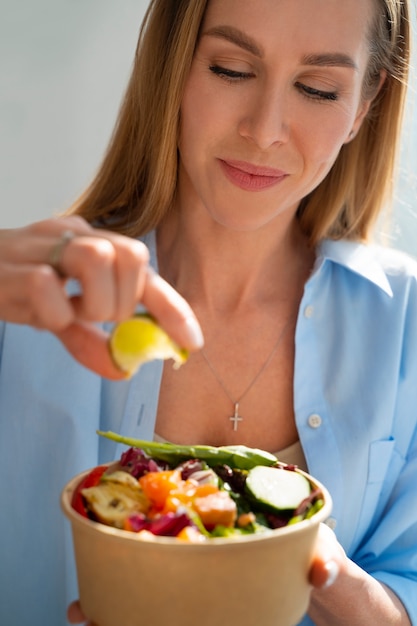
Thinking about going vegan or sticking with plant-based eating after trying Veganuary? Dr. Gemma Newman has some handy advice to guide you on this journey. With all the buzz about different diets like low-carb, high-fat, vegan, and keto, it can be overwhelming to decide which one to follow. However, amidst all this, Veganuary’s popularity is skyrocketing, with participant numbers increasing each year. The big question remains: is going vegan a healthy choice, and how does it stand out from other diets?
Historically, there’s been a lot of confusion about nutrition due to mixed messages from the media, food companies, and, at times, even health experts. Despite this, no one can dispute the benefits of eating lots of fruits and veggies, opting for whole, unprocessed foods, and reducing intake of processed meats, sugary snacks, and refined products like white bread. Yet, many still cling to the idea of moderation—a concept that doesn’t apply when it comes to harmful habits like smoking, sugary drinks, or processed meats.
In fact, processed meats are classified as carcinogens by the World Health Organization, making them detrimental to health. Thankfully, efforts like Dr. David Katz’s ‘True Health Initiative’ bring top nutrition scientists together to find common ground, agreeing on the importance of a diet rich in plant-based foods like vegetables, fruits, nuts, seeds, and whole grains.
When comparing diets like paleo with whole food plant-based, they share more similarities than differences, especially compared to the typical Western diet. Promoting heart health is crucial since heart disease is a leading cause of death. The whole food plant-based diet is the only one shown to reverse coronary artery blockages within weeks, as evidenced by studies like The Lifestyle Heart Trial and the Mount Abu Heart Trial.
While transitioning from a Western diet to a plant-based one can be daunting, there are ways to make it manageable. Start small, maybe by swapping favorite meals for their plant-based versions, like replacing chicken curry with chickpea curry. Gradually introduce more plant-based meals into your routine and explore new flavors and ideas without stress.
Consider starting with a plant-based breakfast a few times a week, then extend this to lunch. Over time, build a repertoire of plant-based meals. Though a complete switch offers quicker benefits, your gut may need time to adjust, potentially causing temporary bloating as it adapts.
Both the American and British Dietetic Associations recognize that well-planned plant-based diets are suitable for people of all ages and can help prevent diseases like heart disease and cancer. They’re also linked to lower risks of chronic respiratory issues and infections in children, helping set a foundation for lifelong health.
However, with today’s nutrient-depleted agricultural environment, a Western diet often lacks vital nutrients like magnesium, folate, and fiber, which a plant-based diet can provide in abundance. To address potential deficiencies, especially for those excluding animal products, consider supplements like vitamin B12 and vitamin D.
Vitamin B12, made by micro-organisms and crucial for breaking down certain proteins, can be sparse in plant-based diets. Adults need at least 10mcg daily. It’s also important for those over 50 or with specific health issues affecting absorption. Vitamin D is also typically low in most people, and even if you consume fish or take traditional supplements, replacing them with algae-based omega-3 supplements is advisable.
To further enhance heart health, incorporating superfoods like milled flaxseed into meals can be beneficial. Dr. Gemma Newman, with her extensive medical background, is a proponent of these nutritional approaches, emphasizing their potential in boosting overall well-being.
If you’re ready to embark on or continue a plant-based diet, explore helpful resources like cookbooks and online communities. This transition can be a journey of culinary discovery and improved health.